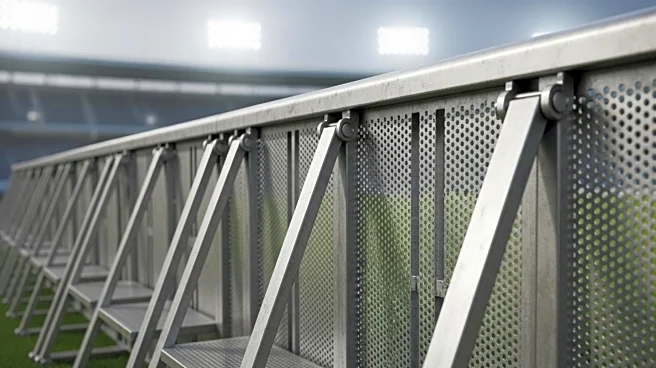What is the story about?
What's Happening?
Ole Miss is set to face LSU in a highly anticipated Top 15 college football matchup. In preparation for the game, Ole Miss has introduced enhanced safety measures, including crowd control barriers behind the sidelines. This decision follows a recent incident where fans stormed the field during a game between Virginia and Florida State, leading to players being trampled. Fortunately, no injuries were reported. The game is crucial for both teams, with Ole Miss aiming for a victory that could propel them into the College Football Playoff picture, while LSU seeks to maintain their top-five ranking. LSU's quarterback, Garrett Nussmeier, is expected to test Ole Miss's defense, which currently ranks last in the SEC against the run.
Why It's Important?
The implementation of crowd control barriers at the Ole Miss-LSU game highlights the growing concern for player and fan safety during high-stakes college football games. Such measures are crucial in preventing incidents that could lead to injuries and disruptions. The game itself holds significant implications for the college football landscape, as a win for Ole Miss could enhance their chances of entering the College Football Playoff, impacting rankings and postseason opportunities. For LSU, maintaining their top-five status is essential for their championship aspirations. The outcome of this game could influence team strategies and fan engagement in future matches.
What's Next?
The game between Ole Miss and LSU is scheduled to take place on Saturday afternoon, with kickoff at 3:30 p.m. ET. As both teams prepare for this critical matchup, the effectiveness of the crowd control measures will be closely monitored. Should these barriers prove successful, they may become a standard practice in future games, especially those with high attendance and playoff implications. Stakeholders, including university officials and sports organizations, will likely evaluate the impact of these measures on fan experience and safety.















